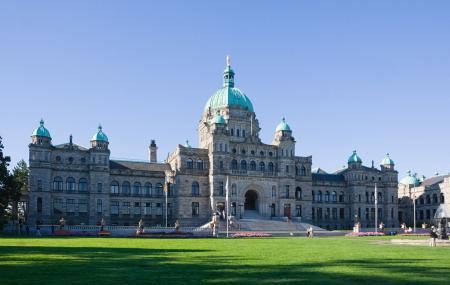David Eby should fight for British Columbians

Premier David Eby needs to decide who he’s working for: British Columbians or Prime Minister Justin Trudeau.
British Columbians sure didn’t want Eby to make life more expensive by jacking up taxes, but Eby decided to stand side-by-side with Trudeau and ram through a carbon tax hike anyway.
On April 1, Eby hiked the carbon tax in B.C. Add that carbon tax to all of the other fuel taxes in the province and drivers here are hit with a huge bill. In the Lower Mainland, drivers will now be paying a total of 81 cents in taxes per litre of gasoline. Folks in Greater Victoria will be paying around 74 cents per litre in taxes. People in the rest of the province will be paying 67 cents per litre in taxes.
B.C.’s carbon tax hike of around three cents per litre came on the same day that the Trudeau government raised the federal carbon tax on every other province, except for Quebec, which gets preferential treatment from Trudeau and is allowed to pay a lower carbon tax.
The federal government implemented a backstop. It requires provinces that have their own carbon taxes, like B.C., to raise their provincial tax in lockstep with the federal carbon tax.
Every provincial premier where the carbon tax hike went through asked Trudeau to reconsider. Every premier except for Eby.
In Manitoba, NDP Premier Wab Kinew is putting forward a proposal to exempt his province from the federal carbon tax backstop. The Liberal premier of Newfoundland and Labrador, Andrew Furey, wrote a letter to Trudeau asking him to cancel the carbon tax hike. In Saskatchewan, Premier Scott Moe went a step further and stopped collecting the federal carbon tax on home heating fuels.
But British Columbians haven’t heard a peep from Eby.
It should be an easy decision for Eby to oppose the federal backstop. A recent Leger poll found three-quarters of British Columbians wanted our premier to stand up against the carbon tax hike.
The carbon tax is unpopular for a reason: People are already struggling to afford the necessities. Last year saw the highest demand for food banks in B.C.’s history. It’s the “toughest time ever to afford a home,” according to RBC, with Vancouver and Victoria experiencing the “biggest deterioration” in housing affordability across the country. Over the summer, more than half of British Columbians were $200 or less away from not being able to pay their bills.
Raising the carbon tax makes it more expensive to transport food to store shelves, to drive to work or take your kids to soccer practice.
The government’s carbon tax rebate scheme also comes across like a sick joke on taxpayers.
The median family income in B.C. is $99,610, according to recent government statistics. For a family of four, the rebates disappear when they make more than $94,845. Those numbers mean the average family in B.C. won’t see a cent back from the provincial government through the flawed carbon tax rebate scheme.
In 2024, the Eby government is expecting to take in $2.6 billion in carbon tax revenue, while only returning $1 billion to taxpayers. That means British Columbians are $1.6 billion worse off because of the carbon tax, this year alone.
Standing up to Trudeau against the carbon tax hike should have been an easy decision for Eby. But he decided to cozy up to the federal Liberals instead.
Eby should fight for the British Columbians he was elected to represent. And that means fighting to make life more affordable by opposing Trudeau’s carbon tax backstop and ditching the tax altogether.
Carson Binda is the B.C. director for the Canadian Taxpayers Federation.